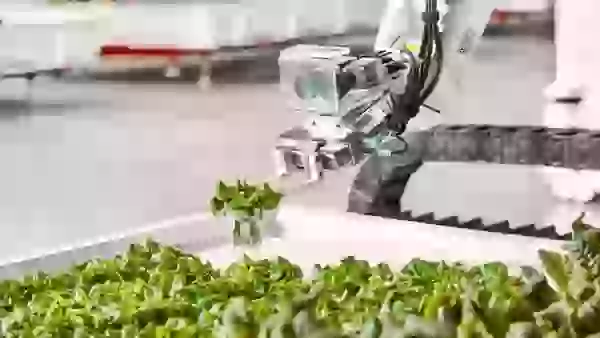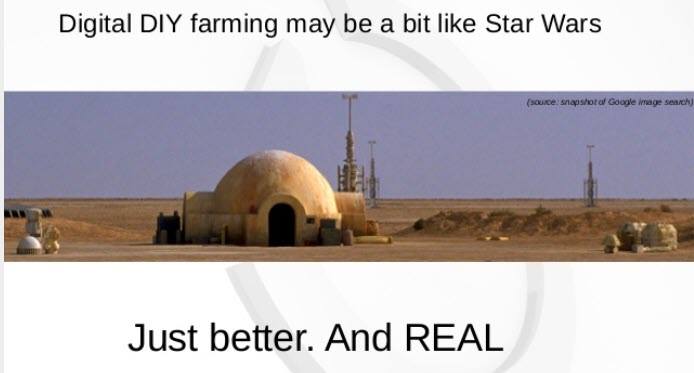What's wrong with automatic farming STARTUPS
Easy. It’s the fact that they are startups, of course

A “robot farming startup” that just started selling its produce shows the “advantages and disadvantages of this sort of semi-automated agriculture”. From the wrong point of view.
The main advantage of such “robot farms” would be that, being very small, they can be located much closer to their end customers. Being very small, however, also is the main disadvantage of the same farms. Current sizes, costs and technological limits mean that, unless some radical change comes along, they can only be niche producers of boutique produce (“just three varieties of leafy greens”) for customers able to pay more.
The limits are the fact that “humans are still cheaper than robots”, and therefore still needed for much of the work. The first Verge article about Iron Ox put it this way:
“If Iron Ox truly wants to change farming, it needs to compete on price with [BIG] modern outdoor farms that have been optimized over the past century to produce incredible amounts of produce as cheaply as possible."
That first article also points out that, in very hot summers, when lettuce would stop growing, Iron Ox would be able to “guarantee a market push-through for large customers."
“Still, it’s just the start for Iron Ox and the new wave of automated farming startups. And if the market they’re trying to create starts to grow, who knows what fruit it will bear”.
What is missing: priority on feeding ALL people. Everywhere
Those articles are about “Companies who want to use robotics and AI to revolutionize farming, but first, they have to prove there’s a market for what they’re growing.”
The whole universe painted above is based on startups, markets, profitable boutique products, “serving large customers”, and maximising profits. Nothing against that, really… as long as such visions are not the ones leading the show, or preventing others from feeding more people. In a sense, this is just another side of the “IP-based potato serfdom” just seen in India.
A world of over seven billions people heading into increasing climate change, pollution and inequality should have other priorities. Rather than focusing on startups and (large) companies it should guarantee equal opportunities to cooperatives, for example. And in any case, the “usage of robotics and AI to revolutionize farming” should be through open hardware, to maximise quick adoption and customization of such solutions to fight hunger in sustainable ways.
Robots and artificial intelligence? OK, but 21st century farming should be like Star Wars farming: practical and accessible to the poor, rathern than glamorous:

Here are some practical examples and some more food for thought on this matter (***)
- “Digital DIY for self-sustainability of rural areas”: slides and full paper
- Agriculture innovation in India NOT looking in the right direction?
- Experimentation in agriculture IS necessary. Just make it as diverse as possible
- Last but not least: in case it were not clear, the real, really hard obstacles to making small scale farming, especially with robots, accessible to everybody are not technological. They are the regulations protecting intellectual property abuse, or allowing large corporations to externalize many costs, in ways beyond the reach of small farmers.
()* To have me speaking or working on this, just send an email to mfioretti@nexaima.net. To support more writing, please see below.
Who writes this, why, and how to help
I am Marco Fioretti, tech writer and aspiring polymath doing human-digital research and popularization.
I do it because YOUR civil rights and the quality of YOUR life depend every year more on how software is used AROUND you.
To this end, I have already shared more than a million words on this blog, without any paywall or user tracking, and am sharing the next million through a newsletter, also without any paywall.
The more direct support I get, the more I can continue to inform for free parents, teachers, decision makers, and everybody else who should know more stuff like this. You can support me with paid subscriptions to my newsletter, donations via PayPal (mfioretti@nexaima.net) or LiberaPay, or in any of the other ways listed here.THANKS for your support!